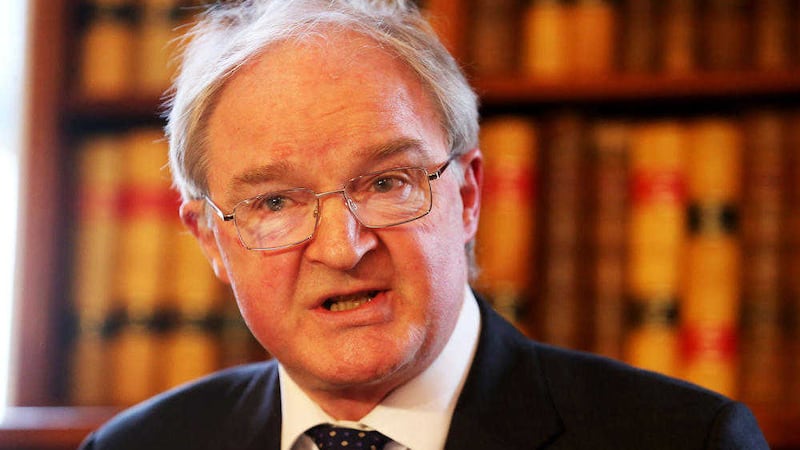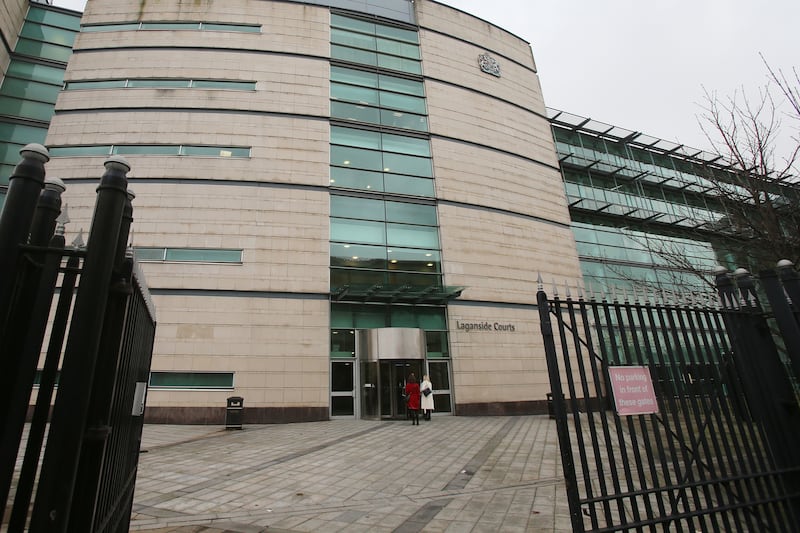Justice department officials have been pressed to explain why it took an intervention from Northern Ireland's most senior judge to resolve the long-running row over legal aid.
A nine-month dispute which had seen barristers and solicitors refuse to take on new legal aid work in the criminal courts was resolved by way of mediation last week.
Lord Chief Justice Sir Declan Morgan suggested the mediation route just before the Bar Council and Law Society were about to mount another court challenge against Justice Minister David Ford's changes to their fee scales.
The agreement reduced the scale of the Department of Justice's proposed £8 million cut to criminal legal aid pay-outs to £5.6 million.
Extra judicial resources are now being put in place to deal with a backlog of around 1,000 cases that had been stuck in the system.
Senior DoJ official Mark McGuckin appeared before the Justice Committee at Parliament Buildings to outline details of the negotiated deal.
Mr McGuckin said the backlog could take the "better part of the incoming year" to work through.
But his claim that "perhaps it didn't occur" to the DoJ that third party mediation might produce a breakthrough prompted a series of questions from committee members.
"Could we have entered mediation at an earlier stage, perhaps it didn't occur to us to try to approach it in that way," Mr McGuckin told members.
"But there wasn't an absence of effort going in to try to resolve the issue in advance of that and maybe the suggestion from the Lord Chief Justice just came at the right time."
In response to the remarks, Ulster Unionist Danny Kennedy said: "It's a jolly good job we have the Lord Chief Justice, isn't it.
"He's the one who appears to have thought, when no one else knew it could go to arbitration.
"I have to say it's a pretty astonishing admission on behalf of the department. I'm not sure if it was intended as that, but it is interesting to say the least that the only person who thought that mediation was an option in this was the Lord Chief Justice."
SDLP member Alban Maginness noted how effective mediation had proved.
"You had a period of nine months - that is a very long period of time to have these negotiations ongoing with no settlement," he said.
"And then within a period of a week or two through mediation you get a settlement, which I presume is acceptable to both sides, it seems an extraordinary development."
Sinn Fein's Raymond McCartney said previous department claims that there was no room for negotiation on the scale of cuts had proved unfounded.
He asked whether that could undermine the DoJ's hand and set a precedent in respect of other planned cuts to civil legal aid.
"When you come up here (to the committee) and tell us 'that's us, we're finished' (in terms of money available), it's going to be difficult for people not to say 'well, there must be a wee bit of fat left in the system'," he said.
Mr McGuckin said each negotiation was conducted on "its own merits".
DUP committee chair Alastair Ross welcomed that a resolution had been found.
"We are pleased we have found a resolution to this," he said.
"There was a fear this would drag on, obviously making the backlog even worse. So we are glad we have got a deal."








